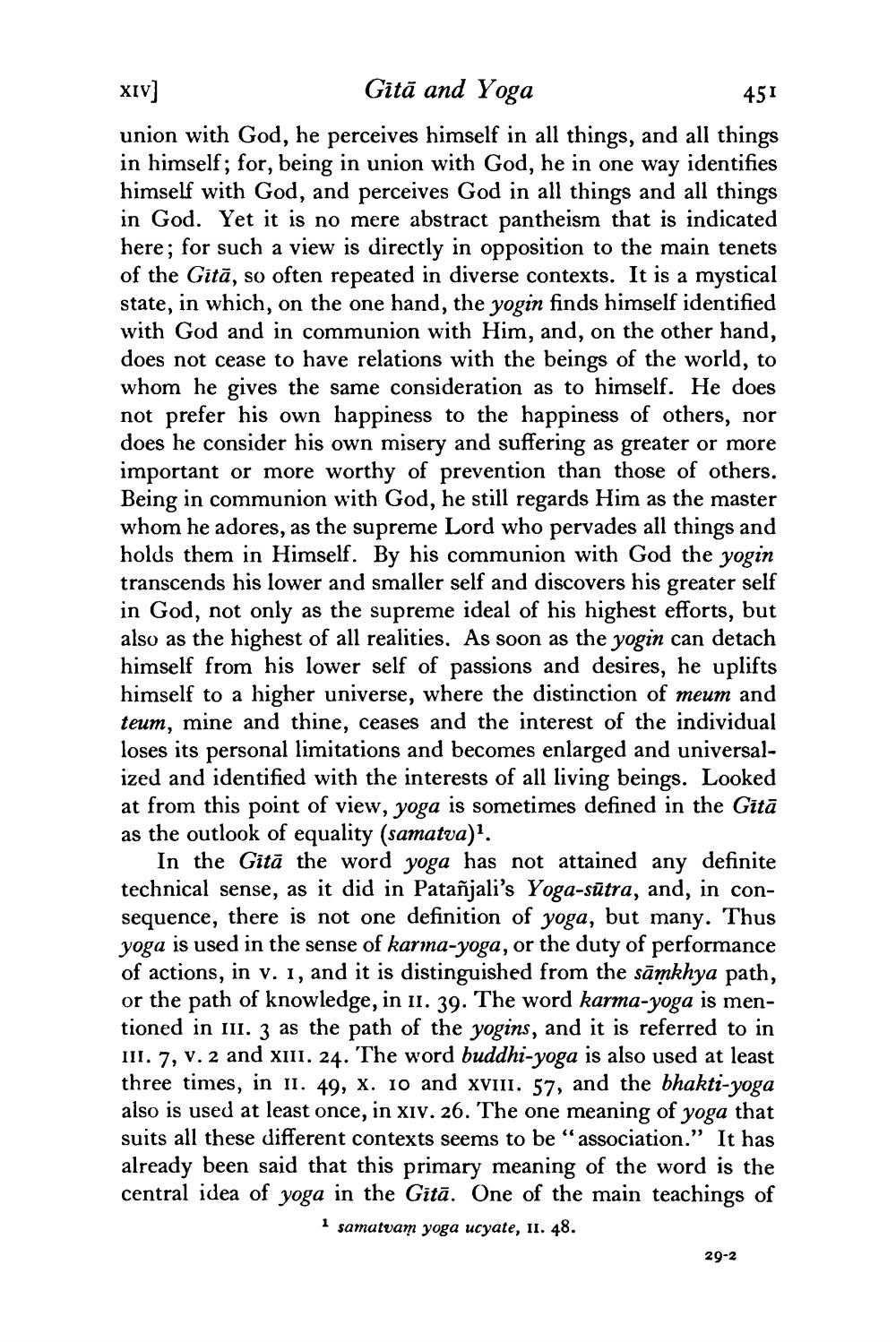________________
XIV]
Gită and Yoga
451
union with God, he perceives himself in all things, and all things in himself; for, being in union with God, he in one way identifies himself with God, and perceives God in all things and all things in God. Yet it is no mere abstract pantheism that is indicated here; for such a view is directly in opposition to the main tenets of the Gitā, so often repeated in diverse contexts. It is a mystical state, in which, on the one hand, the yogin finds himself identified with God and in communion with Him, and, on the other hand, does not cease to have relations with the beings of the world, to whom he gives the same consideration as to himself. He does not prefer his own happiness to the happiness of others, nor does he consider his own misery and suffering as greater or more important or more worthy of prevention than those of others. Being in communion with God, he still regards Him as the master whom he adores, as the supreme Lord who pervades all things and holds them in Himself. By his communion with God the yogin transcends his lower and smaller self and discovers his greater self in God, not only as the supreme ideal of his highest efforts, but also as the highest of all realities. As soon as the yogin can detach himself from his lower self of passions and desires, he uplifts himself to a higher universe, where the distinction of meum and teum, mine and thine, ceases and the interest of the individual loses its personal limitations and becomes enlarged and universalized and identified with the interests of all living beings. Looked at from this point of view, yoga is sometimes defined in the Gitā as the outlook of equality (samatva)1.
In the Gita the word yoga has not attained any definite technical sense, as it did in Patanjali's Yoga-sutra, and, in consequence, there is not one definition of yoga, but many. Thus yoga is used in the sense of karma-yoga, or the duty of performance of actions, in v. 1, and it is distinguished from the sāmkhya path, or the path of knowledge, in 11. 39. The word karma-yoga is mentioned in III. 3 as the path of the yogins, and it is referred to in III. 7, v. 2 and XIII. 24. The word buddhi-yoga is also used at least three times, in II. 49, X. 10 and xvIII. 57, and the bhakti-yoga also is used at least once, in XIV. 26. The one meaning of yoga that suits all these different contexts seems to be "association." It has already been said that this primary meaning of the word is the central idea of yoga in the Gitā. One of the main teachings of 1 samatvam yoga ucyate, II. 48.
29-2




